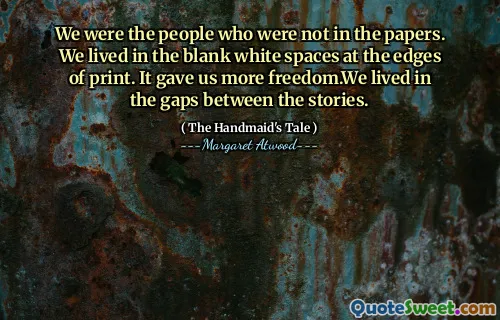That was when they suspended the Constitution. They said it would be temporary. There wasn't even any rioting in the streets. People stayed home at night, watching television, looking for some direction. There wasn't even an enemy you could put your finger on.
In Margaret Atwood's "The Handmaid's Tale," the narrative reflects on a moment when the government decided to suspend the Constitution under the pretense of temporary measures. This choice was made despite the absence of significant civil unrest or public outcry, as most citizens retreated into their homes, consuming media and seeking guidance in uncertain times. The feeling of unease permeated society, highlighting a sense of disconnection from any clear adversary.
The story captures the chilling reality of how a society can passively accept the suspension of fundamental rights. Atwood expertly illustrates how individuals can become complacent, allowing authoritarian measures to take root even when there is no immediate threat. This scenario serves as a cautionary tale about the fragility of democratic institutions and the dangers of inaction in the face of encroaching tyranny.

